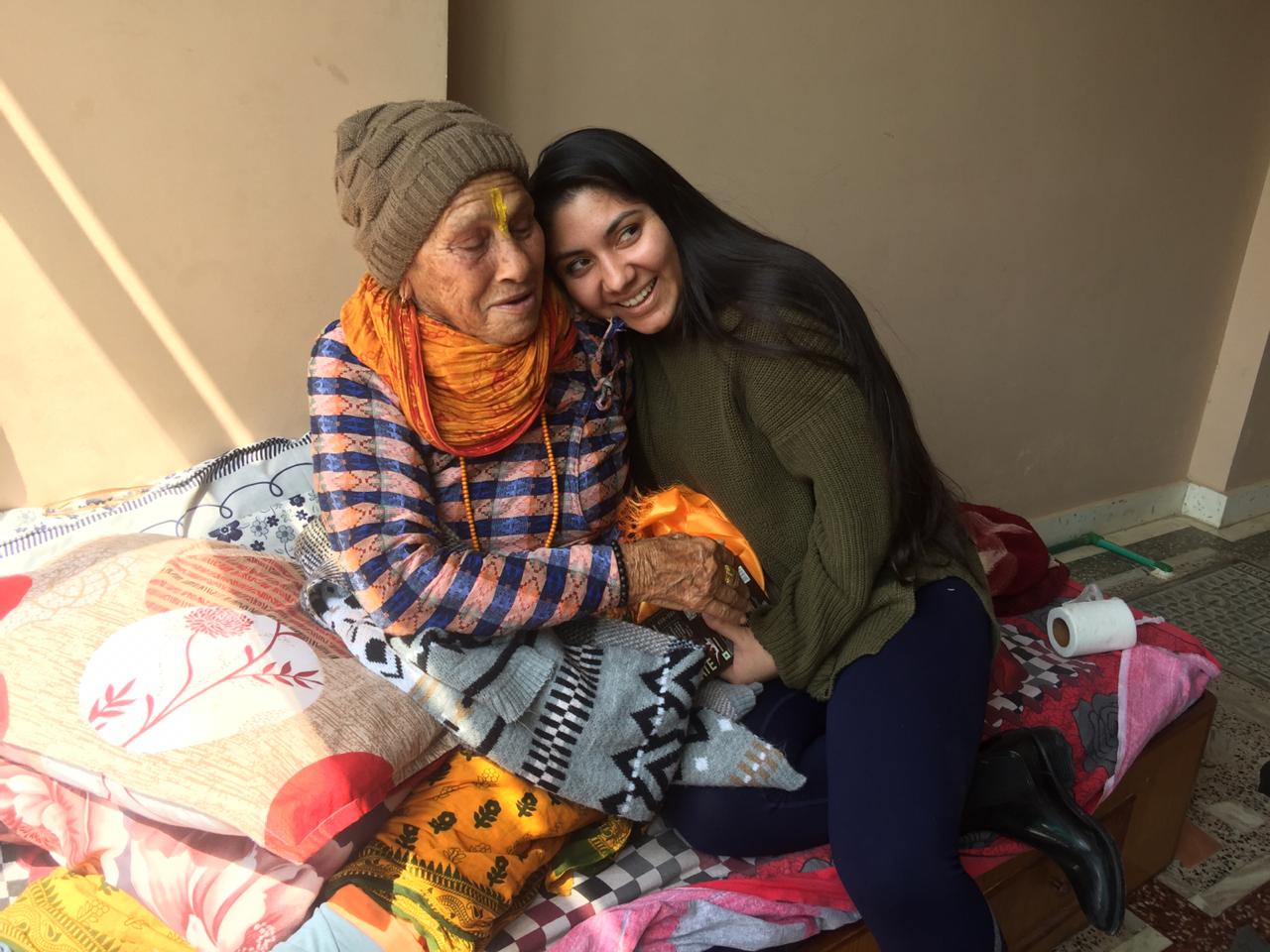She is my only living grandparent who stands at 4-foot-11 and 110 pounds with wrinkled skin and light eyes. In her 90 years of life, she has experienced the most, and she is now currently hanging on for dear life.
She was an orphan at the age of five and married off at the age of nine. She survived natural disasters, countless beatings and experienced the loss of a child and husband all before 40. Nevertheless, she persisted, raising her four living children on a farmer’s earnings. Sugar and meat were only for special occasions in her household; maybe that is the reason she has been a vegetarian for 40 years.
She was there when I was born at Bharatpur hospital. She was there for me when my parents moved to America in search of a better life and left their two-year-old daughter behind. I would whine to her about how my teachers would beat me daily and that I was never going back to school. She still dragged me to school every day reminding me that school was a luxury she could not afford for herself. When I moved to America to rejoin my parents, she was there walking me to and from elementary school and always had a snack in hand. We walked together, me in my school uniform trying to hide my grandmother from my friends. At a time when I was desperately trying to fit in, nothing could be worse for me than being seen with my very ethnic grandmother in her white sari.
She is close to 90 now, and her neuropathy has taken away her ability to walk. Her tremors have taken away her ability to sew.
Still, she is undoubtedly the sharpest person I know. She asks me when I will be done with school, so I can cure her. She asks when I will get time off to visit her. I tell her I do not often get multiple weeks off to make the trip all the way to Nepal. She is living in Kathmandu now, so our communication is limited to FaceTime. There’s a 13-hour time difference and thousands of miles, and through FaceTime is how I noticed the droop in her face. I knew there would be no code stroke for her and no ambulance on the way.
With tears in my eyes, I could feel her slipping away.
You see, medicine is a luxury some cannot afford. I see the lengths we go to in America to diagnose strokes — “time is brain” we say. It seems my grandmother has run out of time. I can feel the irony of learning medicine in America knowing that my family in Nepal will not receive the same medical treatment. Learning medicine as an immigrant is a responsibility. It is a sacrifice. I spend hours studying during holiday breaks, not to ace my clerkships, but for the woman who used to walk me to school when I was nine. I know that every test I pass is not just my victory, it is hers.
When you are an immigrant from a poor family, studying medicine is never just for you. It is for my ailing grandmother who I desperately wish I could cure. I would read every book and learn every cure if it could take her pain away. I learn medicine for my village that is still waiting for their second dose of the COVID-19 vaccine because they are too afraid to leave their house amidst the pandemic. This knowledge I am accumulating is the food that will sustain my family for generations to come. When you see a medical student with roots in the global south, I hope you see the sacrifice and the responsibility they carry on their shoulders.
I do not have my grandma’s skin or her eyes, but I have all her grit and her height.
This one is for you, Ama.
Image credit: Personal Image from the author for this Mosaic in Medicine piece.

